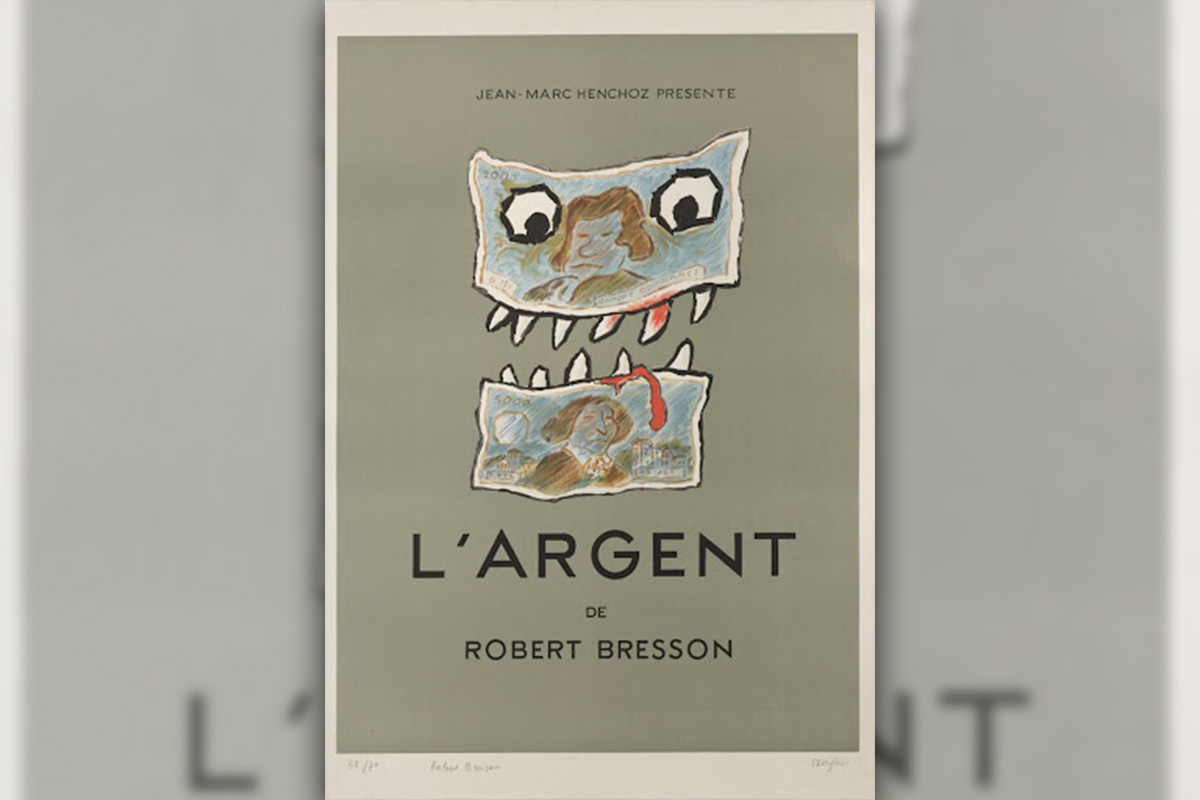
L’Argent (1983) is the final work directed by French film master Robert Bresson—and one of his finest. As expressed by the title (L’Argent means “money” in French), it’s a movie about the way that money controls our lives.
The movie begins with two teenagers, who use a counterfeit bill to scam a photo shop. This bill eventually ends up in the hands of Yvon, an innocent truck driver who takes the fall. He avoids jailtime, but loses his job, and is forced towards crime to support his wife and child. He quickly winds up in prison, loses his family, and suffers a complete moral degeneration as a result.
Bresson clearly sees the hunt for money as the source of great evil. Nearly every character lies, cheats, steals, or murders for money. And each of these actions set off chain reactions, which ruin innocent peoples’ lives in ways that no one can predict and that the victims are unable to comprehend.
This, of course, is a fact of life under capitalism. Money is nothing more than the combined wealth of society. But this wealth has been alienated from humans, and controls society almost like an omnipotent force. As Marx described, “Money is the estranged essence of man’s work and man’s existence, and this alien essence dominates him, and he worships it.”
This is all communicated through Bresson’s unique directing style. He had total disregard for the art of acting. All of his films exclusively feature non-professional actors, who he rigorously trained to act with as little emotion as possible. He would famously make actors rehearse scenes over and over, until he had stripped away any remaining affects.
Bresson was obsessed with the mechanics of film. He preferred to treat actors like marionette dolls, putting extremely detailed focus on their physical actions. His movies all contain long scenes focusing on characters’ backs, midriffs, or hands, and many scenes with little to no dialogue.
Yet all of his films contain great emotional depth. Bresson had many interesting things to say about the human conditions, and he did so in a powerful and distinct voice. As film critic Roger Ebert once put it, “Because the actors didn’t act out the emotions, the audience could internalize them.”
His usual devices are very effective in L’Argent. The style bolsters the general theme of alienation. The characters are derived of much of their agency. They act like gears in a machine, controlled by desires that are too powerful for them to understand or control. This captures how most people feel living in modern society.
So long as capitalism exists, money will continue to distort human relations in the way depicted by L’Argent. It is our task to collectivize society’s wealth and put it into the service of mankind.

